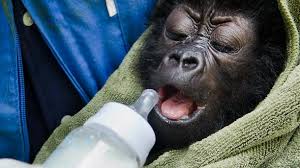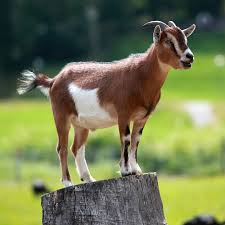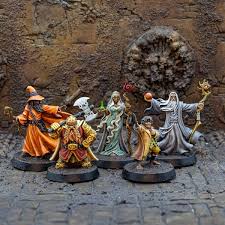Stamp: Annunciation of the Shepherds; Altomünster (Berlin 1980)
Annunciation of the Shepherds; Altomünster (Berlin 1980)
13 November (Berlin ) within release Christmas goes into circulation Stamp Annunciation of the Shepherds; Altomünster face value 40+20 German pfennig
| Stamp Annunciation of the Shepherds; Altomünster in catalogues | |
|---|---|
| Michel: | Mi:DE-BE 633 |
| Yvert et Tellier: | Yt:DE-BE 594 |
Stamp is square format.
Stamp Annunciation of the Shepherds; Altomünster it reflects the thematic directions:
Mammals are any vertebrates within the class Mammalia (/məˈmeɪli.ə/ from Latin mamma "breast"), a clade of endothermic amniotes distinguished from reptiles (including birds) by the possession of a neocortex (a region of the brain), hair, three middle ear bones and mammary glands. All female mammals nurse their young with milk, secreted from the mammary glands. Mammals include the largest animals on the planet, the great whales. The basic body type is a terrestrial quadruped, but some mammals are adapted for life at sea, in the air, in trees, underground or on two legs. The largest group of mammals, the placentals, have a placenta, which enables the feeding of the fetus during gestation. Mammals range in size from the 30–40 mm (1.2–1.6 in) bumblebee bat to the 30-meter (98 ft) blue whale. With the exception of the five species of monotreme (egg-laying mammals), all modern mammals give birth to live young. Most mammals, including the six most species-rich orders, belong to the placental group. The largest orders are the rodents, bats and Soricomorpha (shrews and allies). The next three biggest orders, depending on the biological classification scheme used, are the Primates (apes and monkeys), the Cetartiodactyla (whales and even-toed ungulates), and the Carnivora (cats, dogs, seals, and allies).
Goliath (/ɡəˈlaɪəθ/ gə-LY-əth) was a Philistine giant in the Book of Samuel. Descriptions of Goliath's immense stature vary among biblical sources, with texts describing him as either 6 ft 9 in (2.06 m) or 9 ft 9 in (2.97 m) tall. According to the text, Goliath issued a challenge to the Israelites, daring them to send forth a champion to engage him in single combat; he was ultimately defeated by the young shepherd David, employing a sling and stone as a weapon. The narrative signified King Saul's unfitness to rule, as Saul himself should have fought for the Kingdom of Israel
Christmas or Christmas Day (Old English: Crīstesmæsse, meaning "Christ's Mass") is an annual festival commemorating the birth of Jesus Christ, observed most commonly on December 25 as a religious and cultural celebration among billions of people around the world. A feast central to the Christian liturgical year, it is prepared for by the season of Advent or the Nativity Fast and initiates the season of Christmastide, which historically in the West lasts twelve days and culminates on Twelfth Night; in some traditions, Christmastide includes an Octave. The traditional Christmas narrative, the Nativity of Jesus, delineated in the New Testament says that Jesus was born in Bethlehem, in accordance with messianic prophecies; when Joseph and Mary arrived in the city, the inn had no room and so they were offered a stable where the Christ Child was soon born, with angels proclaiming this news to shepherds who then disseminated the message furthermore. Christmas Day is a public holiday in many of the world's nations, is celebrated religiously by the vast majority of Christians, as well as culturally by a number of non-Christian people, and is an integral part of the holiday season, while some Christian groups reject the celebration. In several countries, celebrating Christmas Eve on December 24 has the main focus rather than December 25, with gift-giving and sharing a traditional meal with the family.
The goat or domestic goat (Capra hircus) is a species of domesticated goat-antelope that is mostly kept as livestock. It was domesticated from the bezoar ibex (C. aegagrus aegagrus) of Southwest Asia and Eastern Europe. The goat is a member of the family Bovidae, meaning it is closely related to the sheep. There are over 300 distinct breeds of goat. It is one of the oldest domesticated species of animal - according to archaeological evidence its earliest domestication occurred in Iran at 10,000 calibrated calendar years ago
A book is a medium for recording information in the form of writing or images. Books are typically composed of many pages, bound together and protected by a cover. Modern bound books were preceded by many other written mediums, such as the codex and the scroll. The book publishing process is the series of steps involved in their creation and dissemination.
A festival is an event celebrated by a community and centering on some characteristic aspect or aspects of that community and its religion or cultures. It is often marked as a local or national holiday, mela, or eid. A festival constitutes typical cases of glocalization, as well as the high culture-low culture interrelationship. Next to religion and folklore, a significant origin is agricultural. Food is such a vital resource that many festivals are associated with harvest time. Religious commemoration and thanksgiving for good harvests are blended in events that take place in autumn, such as Halloween in the northern hemisphere and Easter in the southern.
In miniature wargaming, players enact simulated battles using scale models called miniature models, which can be anywhere from 2 to 54 mm in height, to represent warriors, vehicles, artillery, buildings, and terrain. These models are colloquially referred to as miniatures or minis
Animals are multicellular, eukaryotic organisms of the kingdom Animalia (also called Metazoa). All animals are motile, meaning they can move spontaneously and independently, at some point in their lives. Their body plan eventually becomes fixed as they develop, although some undergo a process of metamorphosis later on in their lives. All animals are heterotrophs: they must ingest other organisms or their products for sustenance.







